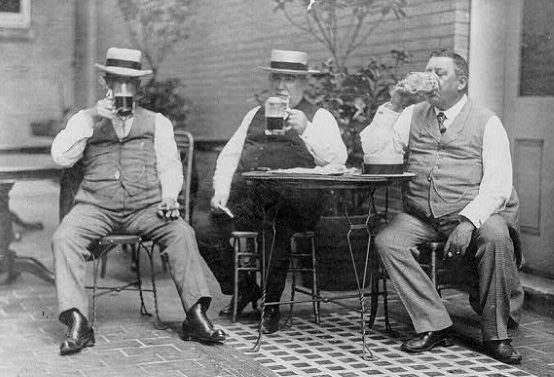Make the Parties Great Again

Why hasn’t the Republican “establishment” stopped Trump? One theory holds that party elders aren’t so anti-Donald as they seem. Trump is obnoxious, certainly. But he also a dealmaker, and therefore the kind of person with whom transactional politicians could do business. The real threat, this theory holds, is Ted Cruz. So maybe the party is willing to accept Trump to avoid a hostile takeover by ideological purists.
Jonathan Chait has a different explanation. He argues party leaders are unable to organize a united front because they’re too conservative for their own good. According to Chait:
The Republican Party has faced a collective-action problem: A consolidation of the Establishment candidates is in all of their interests, but it is in the interest of every individual candidate (and their supporters) to stay in the race. A famous essay called “The Tragedy of the Commons” once explored the nature of a collective-action problem, using the metaphor of a common meadow where farmers bring their cattle to graze, each one letting its cows eat more until all of the grass had disappeared. Republicans by their nature have difficulty grasping collective-action problems, which form the philosophical basis for much government action. If they fail, it will be because they placed too much faith in the invisible hand to sort it out.
Chait’s suggestion is more plausible than the hypothesis that the donor class and their clients are covertly pro-Trump. But it doesn’t come to grips with the more fundamental reason they haven’t been able to stop Trump. The issue is not lack of will or philosophical delusions. To put it simply, they haven’t done it because they can’t.
In the first place, the party has little leverage against a self-financing, universally recognized candidate with no evident interest in acquiring jobs and other perks for his friends and supporters. Since Trump doesn’t need the party, he has no reason to accept its guidance. That’s a big part of his appeal to voters.
Even if the party can’t muscle Trump, perhaps it could force out weaker candidates, consolidating its influence around one or two alternatives. The trouble is, other candidates are not much more dependent on the national party than Trump. All raise and spend their own money with little oversight. Many have been out of office for some time or will retire after the election, which means they’re not counting on the party to advance their careers. And media attention depends increasingly on outrageous quotes rather than the approval of Washington- and New York-based gatekeepers. Since the party can’t do much to promote or threaten their interests, they have little incentive to bow to the party’s will.
These aren’t just Republican problems. If it were up to Reince Priebus’s Democratic counterparts, the Bernie Sanders campaign would not have gotten off the ground. But what can they do about a challenger who doesn’t need their money and doesn’t want their patronage? Not much more than wait to see how things turn out.
Contrary to Chait’s suggestion, conservative ideas are not to blame for the parties’ incapacity. Although they have been further weakened by recent developments, including the deployment of great fortunes in politics and the advent of social media, progressives have been trying eliminate the parties as serious players for more than a hundred years.
In the 19th and early 20th centuries, their targets were the urban machines, which progressives regarded as corrupt and incompetent. By World War II, the welfare state and good government rules had almost finished off the old bosses. In the 1950s and ’60s, reformers turned against the Southern Democrats, who exercised disproportionate influence in presidential nominations and Congress. The introduction of primaries to select convention delegates and modifications of the legislative process eliminated these obstacles to progressive candidates and policies. After Watergate, finally, liberal Democrats made it much more difficult for the parties to raise and spend money. The hope was that more regulated parties would be cleaner parties.
These changes were generally well-intentioned. But they had the unintended result of making candidates reliant on their own resources to win election and responsible for making their own way after they took office. The parties could control their members so long as they could offer rewards for good behavior and threaten punishments for noncompliance. Deprived of the carrot as well as the stick, they became little more than letterheads.
So Trump is not only a consequence of the GOP’s failure to offer any plausible responses to voter’s actual problems. His success has been made possible by decades of attempts to departisanize American politics in the expectation that more independent candidates would be more likely to pursue the common good. Unfortunately, absence of party discipline leaves politicians free to express their personal and pursue their political hobbyhorses. A serious and long-term response to Trump must consider ways to make the parties great again.
Samuel Goldman is assistant professor of political science at The George Washington University.
Comments